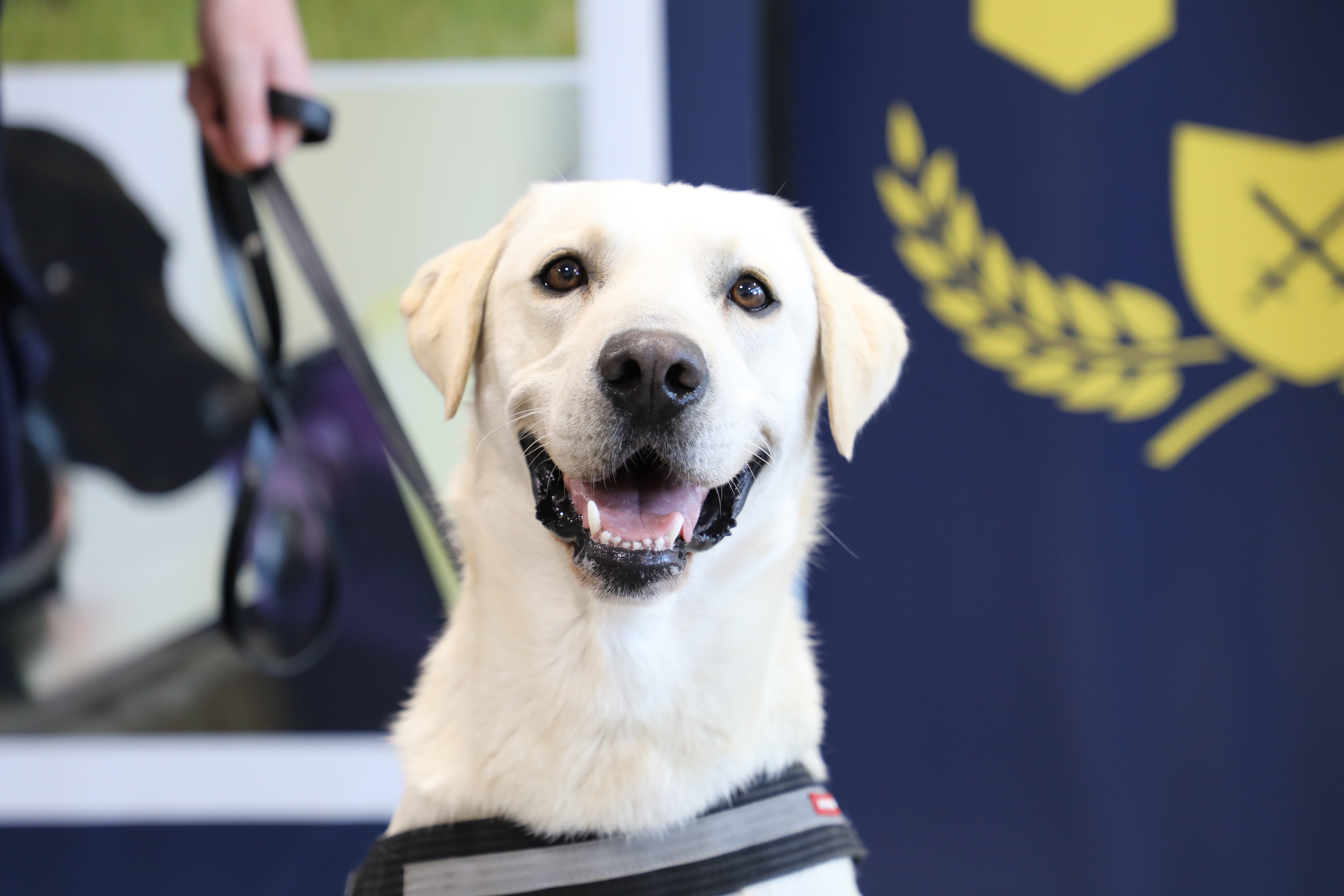
Three Australian Border Force (ABF) detector dogs and their handlers have today graduated with honours and will soon start their official duties on the front line.
The graduation took place at the National Detector Dog Program Facility in Melbourne and celebrated the conclusion of eight months of hard training for the dogs and their handlers.
The dogs, Hawk, Kath and Grayson, have been specifically trained to detect explosives and will be deployed to regions around Australia to protect the community from potentially deadly security threats.
Commander Tactical Capability, Rod Winchester, congratulated the teams on their achievement.
"We are very proud of our new graduates," Cmdr. Winchester said.
“We run a world class detector dog training program, but any program is only as good as those who are part of it. The hard work and dedication of our foster carers, our breeding, training and support teams and operational units is to be commended."
The ABF Detector Dog Program plays an important role breeding and training detector dogs for the ABF and partner agencies that help protect Australia's borders from the importation of prohibited and restricted goods, and provides an excellent complementary detection capability alongside the intuition of our officers and technologies such as x-ray and trace particle detection.
Detector dogs are trained to find illicit drugs, currency, explosives, firearms and tobacco in a range of operational environments and are used for their unobtrusive and non-discriminatory broad screening detection capability, as they're able to screen large volumes of people and goods quickly and efficiently.
Last calendar year ABF detector dogs made more than 1500 detections of illicit substances and prohibited items across airports, sea ports and postal gateways.
The ABF's Detector Dog Program is world renowned, with graduates in high demand. The program services the needs of the ABF, as well as domestic and international law enforcement partners.
The ABF has 79 dogs in active service around the country, and 49 detector dogs have graduated since 2019.
Cmdr. Winchester also took the opportunity to thank the foster carers who assisted the ABF in raising and developing puppies for operational work.
Detector dog foster carers raise puppies in their homes from nine weeks of age for approximately 12 months, providing a safe home for the pups and acquainting them with the sights, sounds and smells of various environments. This socialisation helps prepare the pups for the rigorous training to become a detector dog.
The ABF is continually seeking volunteer foster carers to assist with the next generation of detector dogs. The ABF provides all food, veterinary needs, equipment, expert advice and training for foster carers.
For further information about the ABF Detector Dog Foster Carer Program or to apply to become a foster carer, visit the Detector Dog Program page on the Australian Border Force website.
Media contact: Australian Border Force (02) 6264 2211